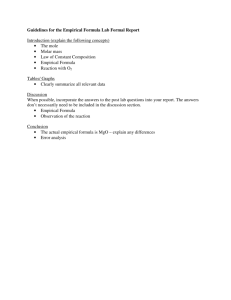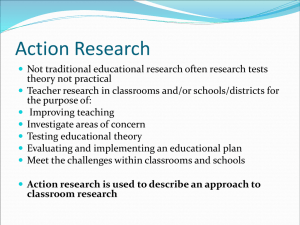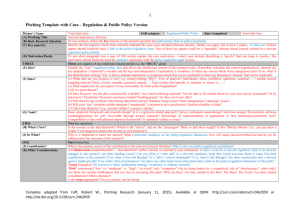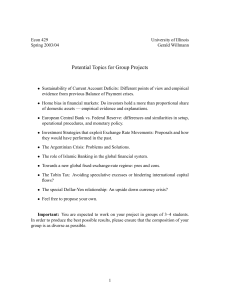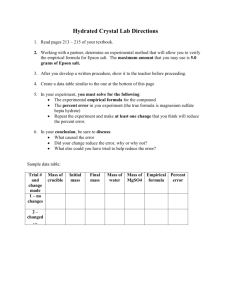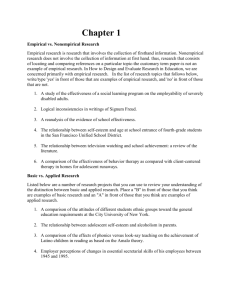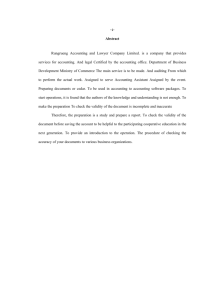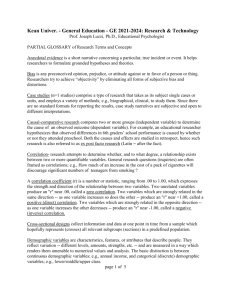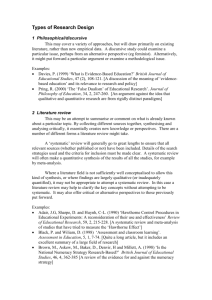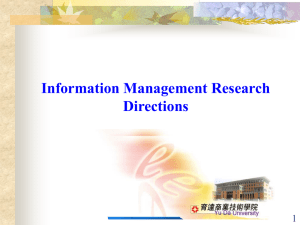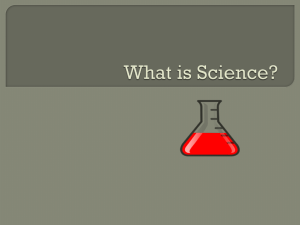Branches of Science
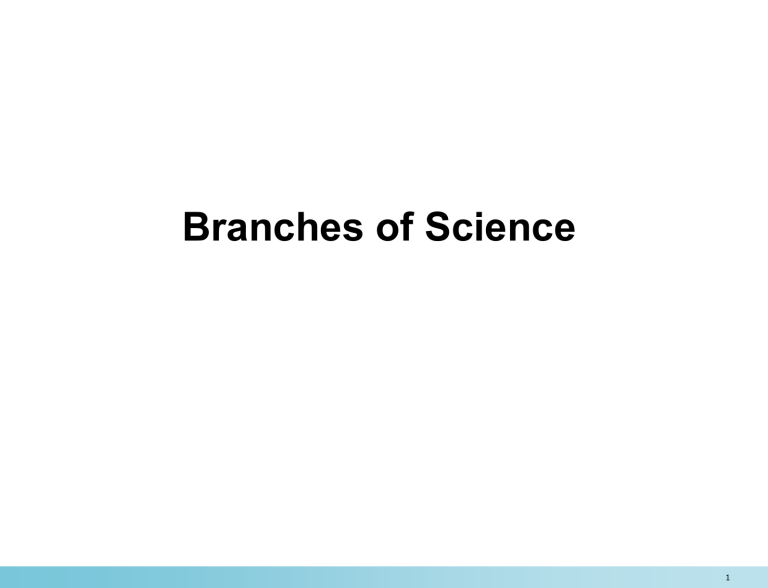
Branches of Science
1
Branches of Science
•
Fundamental Sciences
-
Empirical Sciences
Includes both Social and Natural sciences
Knowledge based on observable phenomena
Capable of being tested for validity, reproducibility
-
Formal Sciences
Mathematics, logic
Use a priori methodology
•
Interdisciplinary and Applied Sciences
-
Medicine
-
Engineering
2
Empirical Sciences
•
Natural Science
-
Branch of science that seeks to elucidate the rules that govern the natural world by applying an empirical and scientific method to the study of the universe.
-
Physical science – Physics, Chemistry
-
Earth science – Ecology, Oceanography, Geology, Meteorology
-
Life science – Biology, Zoology, Human Biology, Botany
•
Social Sciences
-
Apply the scientific method to study human behavior, society, and social patterns
-
Contrast to Humanities that use a critical or analytical approach to the study of the human condition
-
"Social science" is commonly used as an umbrella term to refer to a plurality of fields outside of the natural sciences.
-
Anthropology, archaeology, business administration, communication, criminology, economics, education, government, linguistics, international relations, political science, psychology (especially social psychology), sociology and, in some contexts, geography, history and law
3
Formal Sciences
•
Branches of knowledge that are concerned with formal systems
-
Logic
-
Mathematics
-
Decision theory concerned with identifying the values, uncertainties and other issues relevant in a given decision, its rationality, and the resulting optimal decision.
-
Theoretical computer science
-
Information and systems theory
-
Statistics is the study of the collection, organization, and interpretation of data including planning of data collection in terms of the design of surveys and experiments.
-
Some aspects of linguistics
•
Not concerned with the validity of theories based on empirical knowledge, but the properties of formal systems based on definitions and rules
•
Methods of the formal sciences essential to the construction and testing of scientific models dealing with observable reality
•
Major advances in formal sciences have often enabled major advances in the empirical sciences (e.g. validity of observations from a case series)
4
Applied Sciences
•
Application of scientific knowledge transferred into a physical environment.
Examples include testing a theoretical model through the use of formal science or solving a practical problem through the use of natural science.
•
Applied science differs from fundamental science, which seeks to describe the most basic objects and forces, having less emphasis on practical applications.
•
Medicine is derived from the Latin ars medicina , meaning the art of healing
-
Applied science related to the art of healing by diagnosis, treatment, and prevention of disease.
-
Contemporary medicine applies biomedical sciences , biomedical research, genetics and medical technology to diagnose, treat, and prevent injury and disease, typically through medication or surgery
-
Therapies include medications, surgery, psychotherapy, external splints & traction, prostheses, biologics, pharmaceuticals, ionizing radiation.
5
